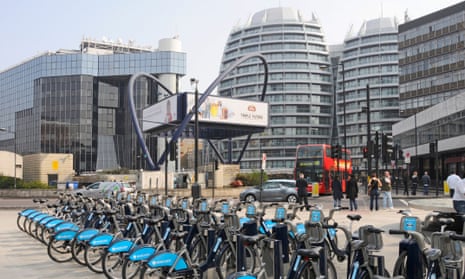Brexit has left the UK’s technology industry reassessing its position, with major firms putting expansion plans on hold as they consider a move to a continental location.
Britain’s financial technology sector is particularly hard-hit, with the prospect of losing access to European markets an unappealing one. “Fintech” has long been one of the UK’s most promising growth areas, in part due to London’s position as the financial capital of Europe.
Taavet Hinrikus, the chief executive and co-founder of foreign exchange service TransferWise, said that the industry will have to “wait and see” to find out the long-term effect.
“This is likely to affect regulation and the movement of talent, two massive issues for business. The two main benefits of being part of the EU are access to talent because of the free movement of labour and the fact that you can ‘passport’ regulation so if you’re regulated in the UK, you’re regulated across the EU. We don’t know what’s going to happen with either of those.”
Hinrikus had been outspoken before the referendum, warning that a Leave vote would lead to his company considering relocating its London headquarters. “It’s unlikely we will close our London office,” he now says. “but we will probably not grow the team based here much more. Headquartering elsewhere is a possibility but we haven’t made a final decision yet.”
Toby Coppel, the co-founder of venture capital firm Mosaic, added a note of optimism. “Entrepreneurs are a very resilient bunch, so in general I’m not worried how that community will respond. I think that they are used to living in a fog of uncertainty, even if this is now quite a dense fog.”
But, he added, the vote would have a definite impact on the future of the nation’s technology sector even so. “The next entrepreneur who’s 22 years old, graduating from a technical university in Germany may, instead of moving to London to do their Fintech startup, decide to go to Berlin instead. I think that’s one of the biggest concerns I have about the trajectory of the London technical ecosystem.”
The technology sector is almost universally supportive of Britain remaining in the EU. One poll of British tech entrepreneurs in the run-up to the vote had support for Remain at 70%, compared to 15% wanting to leave; another, of just London tech workers, is even starker: 87% on one side, and just 3% on the other. It’s even prompted some of Britain’s largest tech companies to speak out publicly.
The reasons for that support include standard business fears about the economic damage Brexit would impose upon Britain, but also sector-specific fears about increased difficulty recruiting world-class talent from overseas, and a loss of access to the Digital Single Market, an EU initiative led by Britain in 2015.
In the run-up to the election, four of Britain’s biggest technology startups spoke up to say how damaging Brexit would be to their industries. In addition to his own company Transferwise, Hinrikus said that Brexit will be “very damaging for the tech industry today and is playing into the hands of the American capital market and tech industry”.
Property site Zoopla said that leaving “would create both economic and political uncertainty”, while fintech firm Funding Circle said “a successful, well-functioning Europe is crucial to a business like ours”. A fifth, JustEat, said “we do not believe that Brexit would have a material impact on Just Eat’s business … Nevertheless, we feel it would be favourable for Britain to remain within the EU.”
Not one of the 14 billion-dollar tech firms based in the UK the Guardian asked said leaving the EU would be good for their business.
